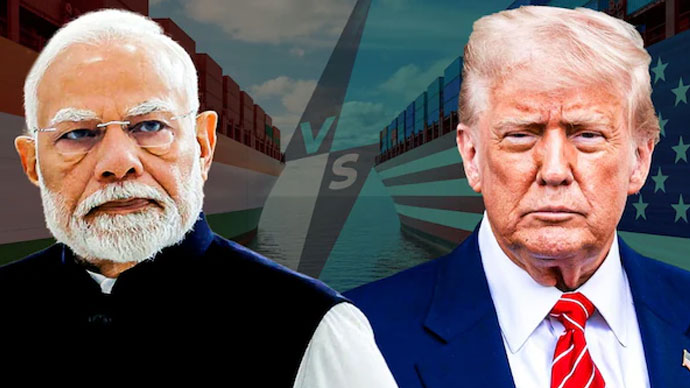Trump Announces Modi’s Pledge to Halt Russian Oil Imports
Indian officials had previously defended these purchases, citing energy security and affordability for a developing economy.
Washington, D.C. – In a significant development in the United States’ global campaign to curb Russia’s energy revenue, President Donald Trump announced Wednesday that Indian Prime Minister Narendra Modi has pledged to stop purchasing oil from Moscow. The move marks a major diplomatic victory for Washington as it intensifies pressure on nations continuing to trade with Russia amid the ongoing Ukraine war.
Speaking at a White House press conference, Trump said, “I was not happy that India was buying oil, and he [Modi] assured me today that they will not be buying oil from Russia. That’s a big step. Now we’re going to get China to do the same thing.”
India, China Among Top Russian Oil Buyers
India and China are currently the two largest importers of Russian seaborne crude oil, taking advantage of discounted prices after Western sanctions pushed European buyers away. India alone imported about 1.62 million barrels per day from Russia in September — nearly a third of its total crude requirements.
Read more: Naqvi slams Indian PM Modi for linking war to cricket after Asia Cup win
Indian officials had previously defended these purchases, citing energy security and affordability for a developing economy. However, this new commitment, if followed through, marks a policy shift under mounting US pressure.
Trump acknowledged that the transition would not happen overnight. “It’s a little bit of a process, but that process will be over soon,” he added.
Tariffs and Diplomatic Pressure
The Trump administration has increasingly applied economic pressure on India over its energy ties with Russia. This year, Trump imposed 50% tariffs on Indian exports to the US — 25% after failed trade negotiations, and an additional 25% explicitly linked to India’s continued crude imports from Moscow.
India reportedly considered the move unfair, especially as other major importers like China and Turkey faced no such penalties.
The announcement follows a recent visit by Trump’s nominee for US Ambassador to India, Sergio Gor, who met with Modi in New Delhi. The two discussed trade, defense, and technology cooperation, with Gor seen as a key figure in shaping Washington’s India policy.
Japan Also Urged to Cut Russian Energy Ties
Meanwhile, US Treasury Secretary Scott Bessent revealed that he had also pressed Japan to end Russian energy imports during talks with Japanese Finance Minister Katsunobu Kato.
“Minister Kato and I also discussed important issues… and the administration’s expectation that Japan stop importing Russian energy,” Bessent posted on X (formerly Twitter).
Neither Japan nor India has officially commented on the reported pledges.
Trump Touts Global and Domestic Achievements
During the same press briefing, Trump addressed broader international and domestic issues, including his efforts to reduce global conflicts.
“I stopped eight wars, also met the prime minister of Pakistan,” he said, adding that seven planes were shot down during the Indo-Pak conflict in May. He also claimed the Pakistani PM once credited him with helping save millions of lives.
Trump further asserted that peace had been established in the Middle East “after 3,000 years” and claimed Russia had suffered heavy losses in Ukraine.
Crime and Operation Summer Heat
Turning to domestic matters, Trump highlighted the success of “Operation Summer Heat,” a federal initiative aimed at reducing violent crime.
“Important successes were achieved in Operation Summer Heat,” Trump declared. “We’ve made Washington the safest city in America.”
He contrasted this with cities like Chicago, where 11 people were reportedly killed last week, vowing to eliminate crime from urban centers across the country.
“The law and order situation in some cities is worse than war zones,” Trump said, emphasizing his administration’s continued “war against criminals” based on the people’s mandate.
Global Impact
The announcement of India’s reported pledge marks a pivotal moment in the geopolitical effort to isolate Russia economically. As attention turns toward China and Japan, the next steps in the Trump administration’s strategy could have far-reaching consequences for global energy markets and diplomatic relations.






Comments are closed, but trackbacks and pingbacks are open.